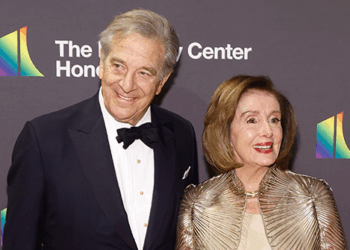A surreal moment as America celebrates its first pope — and wonders what his election means
Leo XIV was forged as much by the outside world as by the United States. That may be why he’s...
L.A. County finds high lead levels in soil on properties already cleaned by Army Corps
New soil testing by the Los Angeles County Department of Public Health has found high levels of lead and other...
Leo XIV’s brother recalls feeling of ‘disbelief’ over his sibling becoming pope
NEW LENOX, Ill. (AP) — When white smoke poured out of the Sistine Chapel revealing that a new pope had...
KTLA weather anchor Mark Kriski shares more about his stroke and recovery
May is National Stroke Awareness Month and Dr. Rahul Jandial, a neurosurgeon and scientist at City of Hope, sheds more...
Jimmy Kimmel Reveals the Real Reason Why MAGA Hates the New Pope
Jimmy Kimmel seemed thrilled to hear that Chicago native Robert Francis Prevost, now going by the title Leo XIV, has...
3 Grunge Songs About Real People and Things in Seattle
Grunge music was born in Seattle, Washington. Officially, the genre started some time in the 1980s and rose to become...
EU farm plan earmarks more cash for disaster relief even as it loosens green rules
BRUSSELS — The European Commission’s plan to slash bureaucracy for farmers risks hurting the planet. The EU executive wants to...
A ‘Grey’s Anatomy’ Wedding Brings Levi Back & Has Link Singing As EP Meg Marinis Teases Season 21 Finale With 2 Couples Facing Breakups
SPOILER ALERT: The story includes details about May 8 episode of ABC’s Grey’s Anatomy “Love You Like a Love Song”...
Justice Sotomayor Says Lawyers Must ‘Stand Up’ and ‘Fight This Fight’
Justice Sonia Sotomayor, speaking to hundreds of lawyers at an American Bar Association event on Thursday night, urged the legal...
What Trump Should Keep in Mind on His Big Middle East Trip
Dear President Trump, There are very few initiatives that you’ve undertaken since coming to office that I agree with —...

















